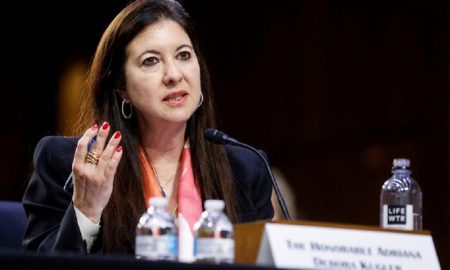
The FIRE Movement is Picking Up Pace and We are Here to Debunk Some Myths

People are unreasonable and as they age, this trend grows. They do not wish to be reminded they cannot have it all. This is one reason why it is difficult to sell frugality as the norm in life. The stage is now set for the entry of supporters of the FIRE (Financial Independence, Retire Early) movement, which advocates a frugal lifestyle (Shades of Thoreau, Whitman and Tolstoy!) thereby saving at least 40 to 50 percent of their income if not more. Admittedly, this inspired everyone, including the media already obsessed with FIRE. Their life stories make for a compelling read and often elicits awe with such questions like, “How can she manage that?”

A WSJ article about this issue was very eye opening. The article featured a middle-aged Seattle lawyer who intends to retire at the age of 40 with about $2 million in savings, and she’s set to achieve her target! To achieve this, she saves 70 percent of her $100,000 annual income. She happily buys brown bananas, borrows passwords to her friend’s Netflix accounts, and walks to work. She is also single with zero children.
Reality Strikes
Such stories are unrealistic and the FIRE movement’s fervent followers are seen as being very extreme and revolutionary by many. It characterizes early retirement and financial freedom for the toiling masses as an unachievable goal and a mere dream. Those managing to save only 10 or 15 percent of their income, if very lucky, can feel like they aren’t able to do much, financially. But these firebrand members of FIRE fail to capture what the spirit of this movement tries to do; encourage people to live frugally and avoid working themselves to an early death.
Possibly, you wish to work until you are 70, or maybe till you turn 80 and even trudge on beyond your 90s, but most folks don’t. They want to command their own lives and yearn for many decades of doing their thing when they want to. The harsh reality is that most people are not saving enough to retire by the age of 65, forget quitting work when they are 40. A movement inspiring individuals to reduce expenses and not waste money on depreciating assets like fancy cars or get bogged down by a mortgage, to retirement deserves praise. If FIRE is to fire up the general population, it must include much more stories than of those odd characters living very frugal lifestyles.

TD Ameritrade conducted a survey involving 1,500 American adults aged over 45, worth $250,000 or more in investable assets. Their aim was to clear the air about some major misconceptions about what FIRE stands for. Despite various achievements, aims and great media coverage, more than 70 percent of Americans surveyed did not know what FIRE stood for, as per TD Ameritrade, when releasing the survey results. Three very common misconceptions, which the TD Ameritrade survey destroyed, are given below:
Myth I: FIRE is for voluntary retiring early after quitting your job
The reality: 75% of the respondents who were financially independent confirmed that financial security is definitely more essential than early retirement. Only 35% reported being motivated by the possibility of quitting their 40 hour per week job. Most respondents said they just needed a better work-life balance and they would be satisfied.
Myth II: FIRE stands for extreme frugality and spending nothing

The reality: Over 67% of the survey respondents who enjoyed financial freedom said FIRE was not worth it if they were forced to live as if they were bankrupt. When they were asked what they would be willing to sacrifice, 40% talked about limiting travel or vacation time. Compared with folks yet to achieve financial independence, FIRE die-hards had almost the same responses about what they would not willingly sacrifice, even to retire early.
Myth: FIRE means lean living when retiring
The reality: 68% preferred to retire at the usual time rather than retire early to live a low expenditure retired lifestyle. The TD Ameritrade survey discovered that people did not prefer a poorhouse lifestyle in order to save more money, and hoping for financial independence later and then retiring on their own laid out terms, late or early. Many FIRE followers, who started actively investing and saving from their 30s itself, comprehended the rule of compounding. They are living proof that by giving up some luxuries now, you hasten the achievement of financial independence.
If you cannot cut expenses and save more to retire early, the FIRE movement and it’s guiding principles will at least motivate you towards a more monetarily secure future and retirement when you finally decide to hang up your boots.
More inFinancial Adviser
-
Will Governor Kugler Push for More Rate Cuts as Inflation Eases?
Federal Reserve Governor Kugler supports the central bank’s recent interest rate cut and plans to advocate for more reductions if inflation...
October 18, 2024 -
Four Seasons Hotel Milano Introduces Personal Styling With Vittoria de Carlo
When it comes to fashion, Milan is unmatched, blending elegance with avant-garde trends. To uncover the heart of Milan’s fashion scene,...
October 9, 2024 -
The Most Successful Female Celebrity Brands
In today’s world, many female celebrities are not just shining in the entertainment industry but also making significant strides as entrepreneurs....
October 1, 2024 -
How to Incorporate Sustainable Outdoor Activities Into Your Travel Adventures
Opting for sustainable outdoor activities may seem challenging at first, but it’s an essential choice for preserving our environment. While integrating...
September 26, 2024 -
Here’s How You Can Get Low Interest on Loans in 2024 & Beyond
How to get a low-interest loan? Well, it is a question many Americans seek an answer to. After all, interest rates...
September 20, 2024 -
How to Buy the Perfect Men’s Belt Online
Selecting the right belt size might seem straightforward, but it can be more nuanced than simply matching it to your pants...
September 12, 2024 -
Why Joey Lawrence and Samantha Cope Parted Ways After 2 Years of Marriage
In a surprising turn of events, Joey Lawrence’s divorce from Samantha Cope has become a topic of widespread discussion. The couple,...
September 2, 2024 -
Must-Visit Tourist Attractions in Brussels
Exploring Fairytale Cities (Bruges and Ghent) One of the best things to do in Brussels is to take a day trip...
August 28, 2024 -
What Is a Write Off and How Companies Use Them?
Understanding the Nuances of Write-Offs Understanding the nuances of what is a write-off is essential for businesses. While the basic concept...
August 23, 2024














You must be logged in to post a comment Login